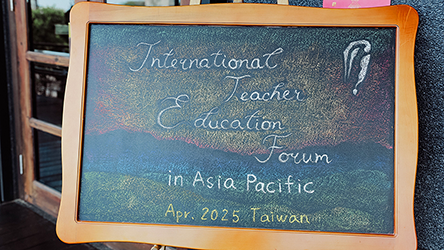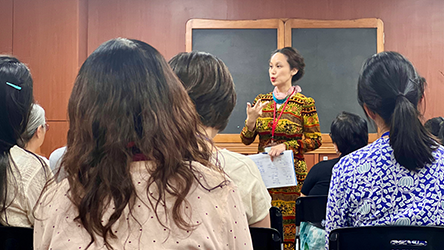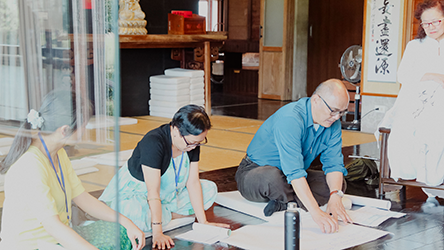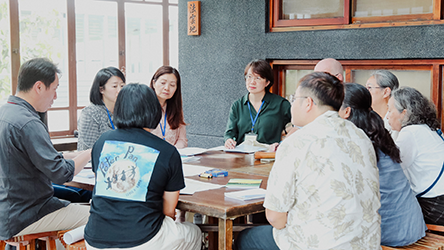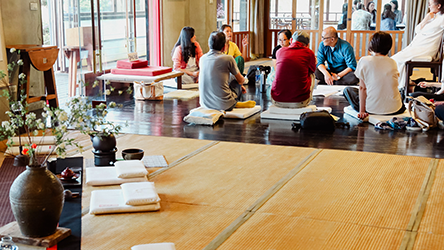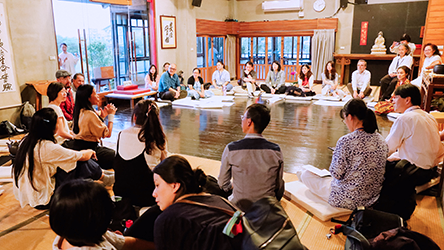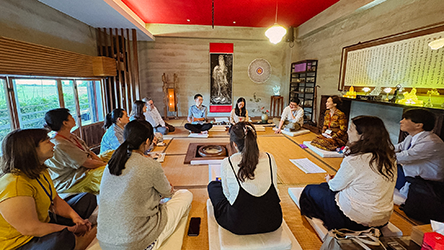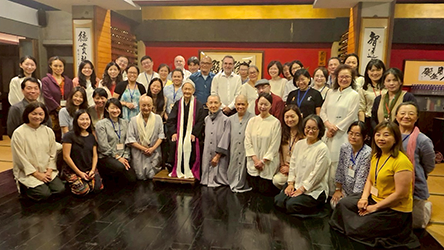Pedagogical training and further education: Exemplary initiatives in Taiwan
How can I carry out my pedagogical practice in such a way that I simultaneously observe how children and young people learn? That I notice how what I provide influences how they develop? How can I draw conclusions from my observations and form concepts from which I can learn something for my teaching practice? And then I share this with others? Philipp Reubke reports on the meeting of the ITEF's Asia-Pacific Working Group in Taiwan.
If you live in Taiwan and are interested, you can join the group Action Research for Waldorf Teachers. Guided by a team of university professors, participants develop their own resources to advance the practice of Waldorf education while also engaging with contemporary educational ideas.
If you want to study a course in Waldorf education, either part-time or full-time, you have a choice of four training centres. Those who already have a bachelor's degree can complete a master's degree in Waldorf education at university; those who work in one of the 29 state-recognised Waldorf schools or 25 kindergartens can take advantage of a range of professional development opportunities. In the summer, 5-day specialist courses help teachers prepare for the coming school year, and there are annual Waldorf conferences for kindergartners and teachers, as well as weekly meetings of pedagogical faculties. And in Taiwan time is somehow found for research and study too!
Is this a kind of paradise for Waldorf education, an island 394 km long and 144 km wide at most with a population of just under 24 million? An island with Chinese temples, Buddhist monasteries, a few Christian churches, huge ultra-modern cities and industrial complexes, nearly 300 mountains over 3000m high, and a Waldorf movement that works well together and is well networked with local and regional administrations. A diverse island with a fragile political status.
The associations of Waldorf schools, Waldorf kindergartens, and training centres are supported by the Anthroposophy Education Foundation, which has fostered the development of Waldorf education for over twenty years. The Foundation recently held a conference for Waldorf teacher educators from the Asia-Pacific region, which was attended by around forty participants from the Philippines, Malaysia, Japan, New Zealand as well as from training centres in Taiwan.
There were presentations by Constanza Kaliks, Chun-Shu Chang, Horn-Fay Cherng, Kai Iruma and Philipp Reubke on methods and content of pedagogical education appropriate to the time and place, as well as a lively exchange of experiences.
Some aphoristic comments which I remember:
Anthroposophical anthropology is only an aid to seeing the phenomenon: the child. (Constanza Kaliks).
Relationship, the ability to relate: the most important field of pedagogical training; Education is usually a tool for political control. But when parents, teachers and educators work together in friendship and in an effort for self-education and insight into human development, education creates forces that can make society healthy (Chun-Shu Chang).
«The development of 'agency' (as in Michael Tomasello’s sense) is central to education: learning to walk – talk – think on one's own initiative as a child, taking responsibility for one's own development and that of the world on one's own initiative as a learner and teacher in the School of Spiritual Science.» (Kai Iruma).
«Waldorf education is partly unborn. It needs the activity of teachers and parents to be fully realized- each time and in in each location in a different way.» (Philipp Reubke)
The conference was initiated by participants of the Asia-Pacific working group of the International Teacher Education Forum (ITEF), a network of anthroposophical pedagogical teacher educators. If you would like to find out more, or would like to take part in the monthly video conferences, you can find out more here.
